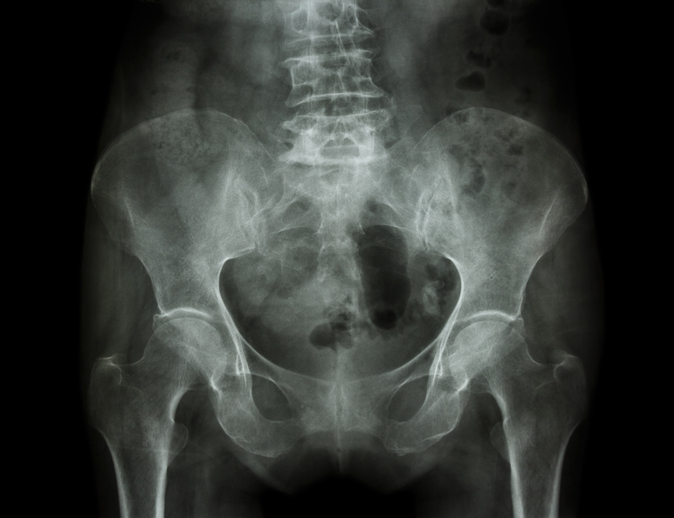Osteoporosis is a disease that weakens the bones. Weakened bones are more likely to break. Osteoporosis affects both men and women, but postmenopausal women are most at risk. This is because after menopause, the body makes less estrogen, which increases bone loss.
In later years, both men and women need to take extra care of their bones because the body loses more bone than it makes. Both the quality and quantity of bone declines in older people. This is why prevention of osteoporosis, which includes exercise and a healthy diet, is important. So is screening for osteoporosis, and if screening finds your bones are thinning, following your doctor’s treatment and lifestyle recommendations.
You Can Prevent Osteoporosis
To help prevent osteoporosis and fractures, you need to exercise and nourish your bones throughout your life. The earlier you begin staying active and increasing your calcium intake, the more bone loss you can prevent.
Exercise is vital for your bone health at any age. It can prevent bone fractures and spine changes by slowing bone loss. Exercise will also strengthen the muscles that support and protect your bones. It can also be fun! A variety of exercises is best:
- Resistance exercises. These build muscle strength and maintain bone mass. They also make you less prone to injury. Exercises include lifting small weights, doing push-ups and sit-ups, using elastic exercise bands, and using weight machines.
- Weight-bearing activities. These help your whole body. They also help you maintain bone mass. Activities include walking, dancing, and housework.
- Non-weight-bearing exercises. These help prevent back strain and pain. They do this by building the trunk and leg muscles. Exercises that help with flexibility can prevent falls. Examples include swimming, water exercise, and stretching.
Before you start a new exercise routine, talk with your healthcare provider to be sure these exercises are right for you.
Screening for Osteoporosis
The strength of bones is measured by their density or thickness. If you are at risk for bone loss, your healthcare provider may order bone density testing. Your doctor will likely recommend bone density testing if you are:
- A postmenopausal woman under age 65, with one or more risk factors in addition to menopause.
- A woman age 65 or older.
- A postmenopausal woman with fractures.
- Considering treatment for osteoporosis.
- Have been on hormone therapy for a long time.
- Have certain health conditions or have been taking certain medicines (such as glucocorticoids or prednisone) for a long time.
Bone density testing is safe, quick, easy, and painless. And, it’s a covered benefit under all Zing Health plans. It can detect osteoporosis before a fracture happens. It can also measure the response to treatment. There are several types of tests that you may have, including:
- Central tests. These are used for screening and diagnosis. They measure density in the hip and spine. The main central test is the dual energy X-ray absorptiometry (DXA). The DXA is the standard bone density test.
- Peripheral tests. These are used for screening. They measure density in the finger, wrist, knee, shin, or heel. A common peripheral test is the quantitative ultrasound (QUS). But QUS screening is not as accurate or widely accepted as DXA screening.
Any bone can fracture. But with osteoporosis some bones fracture more easily. These include bones in the spine, wrist, shoulder, and hip. That’s why bone density testing may be done at one or more of these sites.
Treatment for Osteoporosis
Your test results may seem confusing at first. Don’t be afraid to ask your provider to explain. Your healthcare provider will compare your bone mineral density (BMD) with the BMD of young, healthy bone. The result is called a T-score.
Bones remodel at different rates. So, a healthy T-score in the wrist doesn’t mean the spine is also healthy. That’s why more than one site may be scanned.
If you are diagnosed with osteoporosis, your doctor may recommend medications, calcium supplements, and/or exercise to prevent more bone loss and prevent fractures. Some osteoporosis treatments do have risks, so talk with your healthcare provider about your concerns. If you have osteoporosis, you can also learn ways to increase everyday safety, such as preventing falls.
© 2000-2021 The StayWell Company, LLC. All rights reserved. This information is not intended as a substitute for professional medical care. Always follow your healthcare professional's instructions.
Y0149_B_04222021_C




